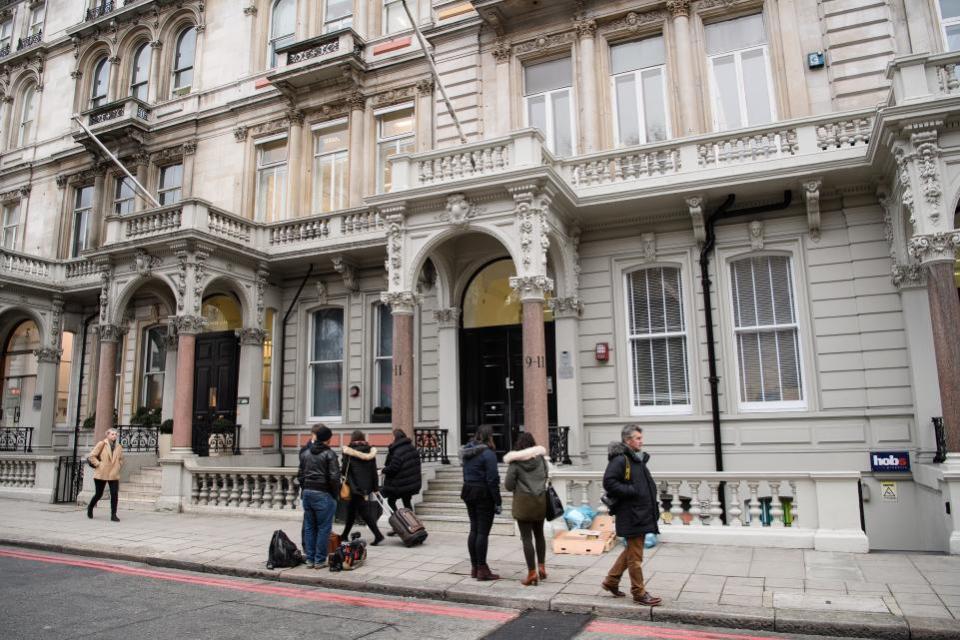GOP Senator Hits Back Against 'Golden Shower' Dossier
It is one of the most notorious documents in recent U.S. political history.
Since it emerged nine months ago, the so-called "golden shower dossier" on President Donald Trump compiled by former British spy Christopher Steele has been cited by Democrats as evidence of the Trump administration’s ensnarement by Russian intelligence, and dismissed as lurid fabrications by Republicans - who in turn claim the document was used to authorize illegal surveillance of Trump officials.
Last week it emerged that the dossier was taken seriously by Robert Mueller, the special counsel appointed to investigate claims of collusion between the Trump campaign and Russia.
According to reports, investigators on Trump’s team have interviewed the document’s author, former MI6 agent Christopher Steele, over claims made in the report, while Congressional Committees investigating Russian collusion want to interview Steele. On Friday, NBC reported that Steele expressed an interest in meeting members of the Senate investigating the claims.
For detractors though, the dossier has acquired unmerited authority, and false claims from it may have already have been recycled by the FBI.
Republican Senator Chuck Grassley, the chairman of the Senate Judiciary Committee, asked whether the intelligence community assessments of Russian influence are based on rumors from the dossier.
In a letter to FBI director Christopher, dated Oct. 4, 2016, Grassley voiced concern that claims in the dossier passed to British intelligence had been given to the FBI and cited as “foreign intelligence.”
Grassley's letter asks the FBI to provide the Judiciary Committee with any foreign intelligence reports that have been used in the agency's Russia investigation, as well as to explain what steps it took to determine whether Steele was the source behind that foreign intelligence.
Republican Richard Burr, the chairman of the Senate intelligence committee, told reporters earlier in the week that the committee backed the findings of U.S. intelligence agencies that Russia had conducted a campaign on several fronts to sway the 2016 election in Trump’s favor.

John Sipher, former senior officer in the CIA’s National Clandestine Service wrote in a blog posting on the Just Security website in September that key claims is the dossier had long been taken seriously by the U.S. intelligence community.
“Many of my former CIA colleagues have taken [the Steele] reports seriously since they were first published,” wrote Sipher.
“This is not because they are not fond of Trump (and many admittedly are not), but because they understand the potential plausibility of the reports’ overall narrative based on their experienced understanding of both Russian methods and the nature of raw intelligence reporting."
A timeline of events in the Trump campaign before and after the election win lends credence to claims in the dossier. Revelations such as the June 2016 meeting between Donald Trump Jr., Jared Kushner and a Kremlin-linked lawyer touting intelligence on Hillary Clinton has placed the Trump administration under increased pressure over its Russia links.
Former Trump campaign officials Carter Page and Paul Manafort, both named in the dossier, are under scrutiny from investigations into Russian collusion, though both deny the accusations, and a recently exposed Facebook fake news campaign by Russian groups on Facebook during the election lends weight to a section in the dossier that Russian "rumors and misinformation" drove down support for Clinton.
No evidence has emerged to support other claims.
A claim that Trump’s long-time lawyer, Michael Cohen, had secret meetings in Prague with Russian officials has been discredited, and no information has emerged to support the document's most scandalous claim: that Trump cavorted in a Moscow hotel room with prostitutes in an encounter filmed by Russian intelligence.
But one thing is certain: claims in the document once dismissed as a collection of wild rumors will continue to cast a long shadow over the administration.
Related Articles


